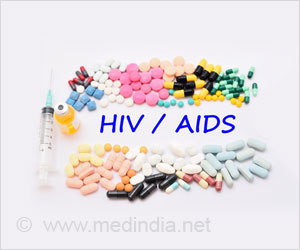A vaccine for pneumonia and meningitis has been found to be effective in offering protection against re-infection in HIV-infected adults, according to a new study.
A new study has realised that a vaccine for pneumonia and meningitis has been effective in offering protection against re-infection in HIV-infected adults.
The clinical trial in Malawi, funded by the Wellcome Trust, saw three out of four cases show a positive result.Researchers at the Malawi-Liverpool-Wellcome Trust Clinical Research Programme, University of Malawi College of Medicine in Blantyre, Malawi, studied the efficacy of a vaccine against infection with the Streptococcus pneumoniae bacteria, which causes invasive pneumococcal disease (IPD).
HIV-infected adults, particularly in sub-Saharan Africa, live in an increased risk of developing IPD.
The experts tested the efficacy of Prevnar, a pneumococcal conjugate vaccine (PCV) developed by pharmaceutical company Wyeth, on almost five hundred predominantly HIV-infected adults who recovered from IPD after being admitted to the Queen Elizabeth Central Hospital in Blantyre.
They found that the vaccine prevented 74 percent of recurrent cases of IPD in patients with underlying HIV infection.
The vaccine prevented disease even when given to patients with CD4 counts of below 200 cells per cubic millimetre of blood.
Advertisement
Dr Neil French, from the London school of Hygiene and Tropical Medicine and lead author of the study, said: "This is the first trial to use a conjugate pneumococcal vaccine in an adult group and find clinical benefits.
"We've shown that conjugate technology overcomes the profound immune deficiency at these low counts. This gives hope for the possible use of conjugate technology in other vaccines targeting important HIV associated bacterial infections, most notably non-typhoidal Salmonella."
He concluded: "Since it works in patients with HIV infection, then by extension, it is likely to work in other adult groups, including the elderly and other at risk groups. This is an important finding to support the further development and use of conjugate vaccines for adults in general."
The study has been published in the New England Journal of Medicine.
Source-ANI













